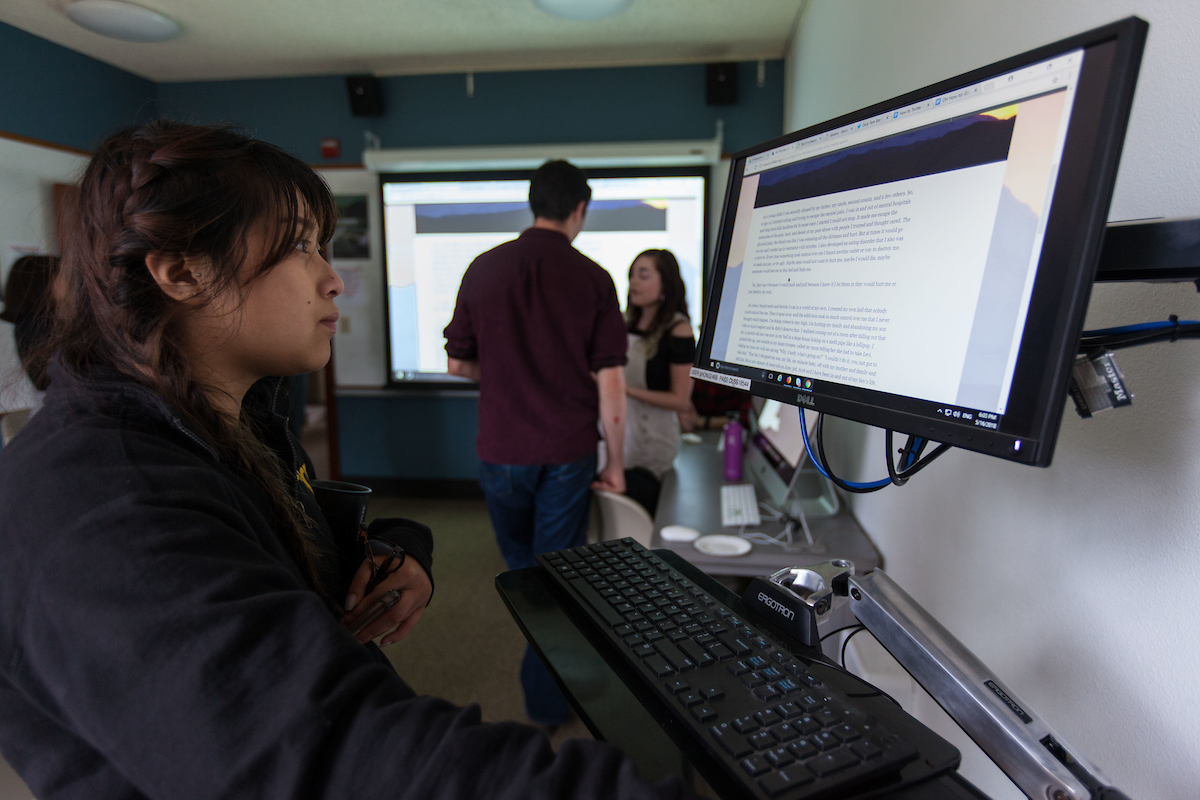Broadly construed, digital humanities is the use of digital media and technology to advance the full range of thought and practice in the humanities, from the creation of scholarly resources, to research on those resources, to the communication of results to colleagues and students.
The DH Lab at PLU promotes a distinctly “PLU” version of DH: small, accessible, cost-effective, globally focused and community driven, and carefully suited to the interests of students and faculty at a small university that champions a holistic understanding of what it means to be a human in the world.
While digital technologies have been applied to humanist practice since the 1960’s, the Digital Humanities as a field of study is relatively new. As such, the meaning and purpose of the field is still being sorted out. In general, one could say that the digital humanities are interested in any intersection of digital technology and scholarly work in (or associated with) the Humanities. That’s broad and it’s broadness makes it difficult to define.
For us in the PLU DH Lab, the Digital Humanities is usefully defined by its methodologies, which include the use of digital technologies in teaching and scholarship, as well as the examination of technology by way of humanistic critical inquiry. DH captures a wide range of technologies and practices, including scanning and digitizing text in archives; teaching with blogs, podcasts, and ePortfolios; studying textual materials via computational programs; data visualization; and many more. But DH also functions as a lens by offering us critical tools we can use to examine technology via methods and approaches common to the humanities.
Our Digital Humanities Lab at PLU embraces the principles of minimal computing and cross-cultural collaborations established by Global Outlook Digital Humanities (GO::DH), a special interest group of the Alliance of Digital Humanities Organizations (ADHO), by prioritizing accessibility and encouraging the use of free or inexpensive software technologies. This lightweight and globally situated version of the Digital Humanities overlaps neatly with PLU’s commitment to social justice, diversity and sustainability; its emphasis on community manifests in the collaborative nature of digital humanities work which inherently fosters interdisciplinary dialogue and civic engagement; its emphasis on multilingualism, borne out of a refusal to privilege the languages and cultures of the northern hemisphere, fosters a healthy and critical understanding of the global that accounts for and makes visible the contributions of southern hemisphere digital humanists, remains aware of and seeks to resolve the uneven access to tools and knowledge, their production and distribution throughout the world. By placing emphasis on these methodologies and goals of Digital Humanities, our DH lab will advance PLU’s mission statement and its commitment to the integration of the liberal arts and civic engagement.



